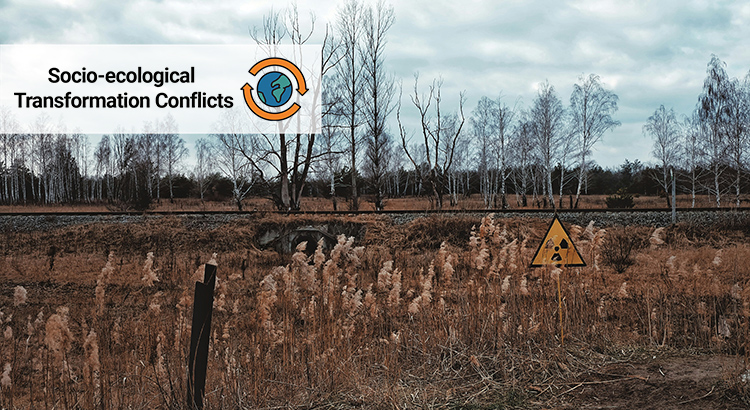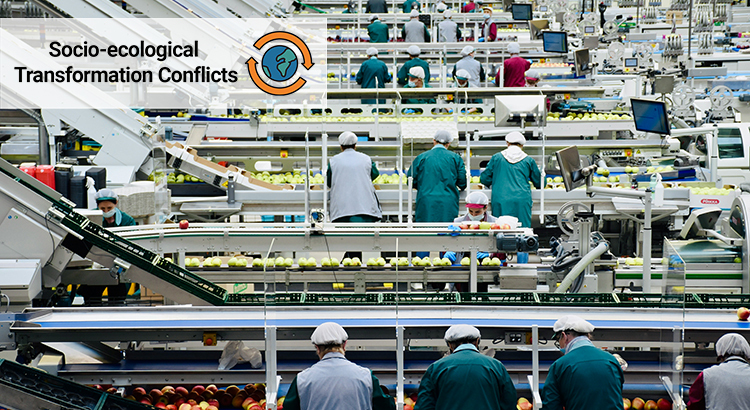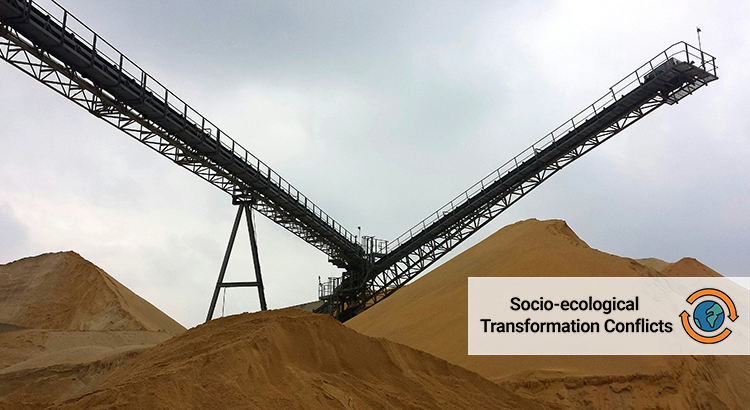Conflicts over climate and energy policy, security and geopolitical dimensions of global decarbonization, or human and environmental rights violations in global value chains: The current socio-ecological transformation is causing new and exacerbating existing socio-political conflicts that will characterize the 21st century.
These are conflicts that take place on very different political fields and levels – local, national, regional, global and planetary – but which are similar in their fundamental problems. This link between the global and local levels of conflict is illustrated, for example, by the Russian war of aggression against Ukraine with its destruction of local ecosystems and the resulting distribution conflicts in global supply chains (for example in the area of food) as well as in German energy policy. This example of multiple interlinked lines of conflict emphasizes the difficulty of predicting socio-ecological transformation conflicts as well as the importance of further research into them.
This raises classic questions of peace and conflict research, such as power structures and hierarchies (e.g. between actors in the Global North/South), violent and peaceful conflict resolution, political, economic, and social inequality, diplomacy, NGOs and social movements, or the role of law and international institutions.
The new working group on socio-ecological transformation conflicts, which introduces some of its fields of research in this blog series, brings together existing expertise on these conflicts at PRIF.
Sozialökologische Transformationskonflikte
Konflikte um Klima- und Energiepolitik, Sicherheits- und geopolitische Dimensionen globaler Dekarbonisierung oder Menschen- und Umweltrechtsverletzungen in globalen Wertschöpfungsketten: Die gegenwärtige sozial-ökologische Transformation verursacht neue und verschärft bestehende soziopolitische Konflikte, die für das 21. Jahrhundert prägend sein werden.
Es handelt sich dabei um Konflikte, die sich auf sehr unterschiedlichen Politikfeldern und – lokalen, nationalen, regionalen, globalen sowie planetaren – Ebenen abspielen, die sich in ihrer grundlegenden Problematik aber durchaus ähneln. Diese Verknüpfung von globaler und lokaler Konfliktebene hat etwa der russische Angriffskrieg gegen die Ukraine mit seiner Zerstörung lokaler Ökosysteme und resultierenden Verteilungskonflikten in globalen Lieferketten (zum Beispiel im Bereich von Lebensmitteln) ebenso wie in der deutschen Energiepolitik unterstrichen. Dieses Beispiel vielfältig verknüpfter Konfliktlinien unterstreicht die schwere Prognostizierbarkeit von sozial-ökologischen Transformationskonflikten ebenso wie die Wichtigkeit ihrer weiteren Erforschung.
Dabei stellen sich klassische Fragen der Friedens- und Konfliktforschung, etwa nach Machtstrukturen und -hierarchien (z. B. zwischen Akteuren des Globalen Nordens/Südens), gewaltsamer und friedlicher Konfliktaustragung, politischer, ökonomischer und sozialer Ungleichheit, Diplomatie, NGOs und sozialen Bewegungen oder der Rolle des Rechts und internationaler Institutionen.
Bestehende Expertise am PRIF zu diesen Konflikten bündelt der neue Arbeitskreis Sozial-ökologische Transformationskonflikte, der sich in dieser Blogreihe mit einigen seiner Forschungsfeldern vorstellt.
Photo: Jandira Sonnendeck via Unsplash
Beiträge // Posts
A Green Recovery for Ukraine: How to Avoid the Trap of Green Colonialism?

A Gap between Social and Ecological Rights: A Commentary after One Year of the German Supply Chain Due Diligence Act

Socio-ecological Transformation Conflicts: A Central Field of Conflict and Research in the 21st Century

